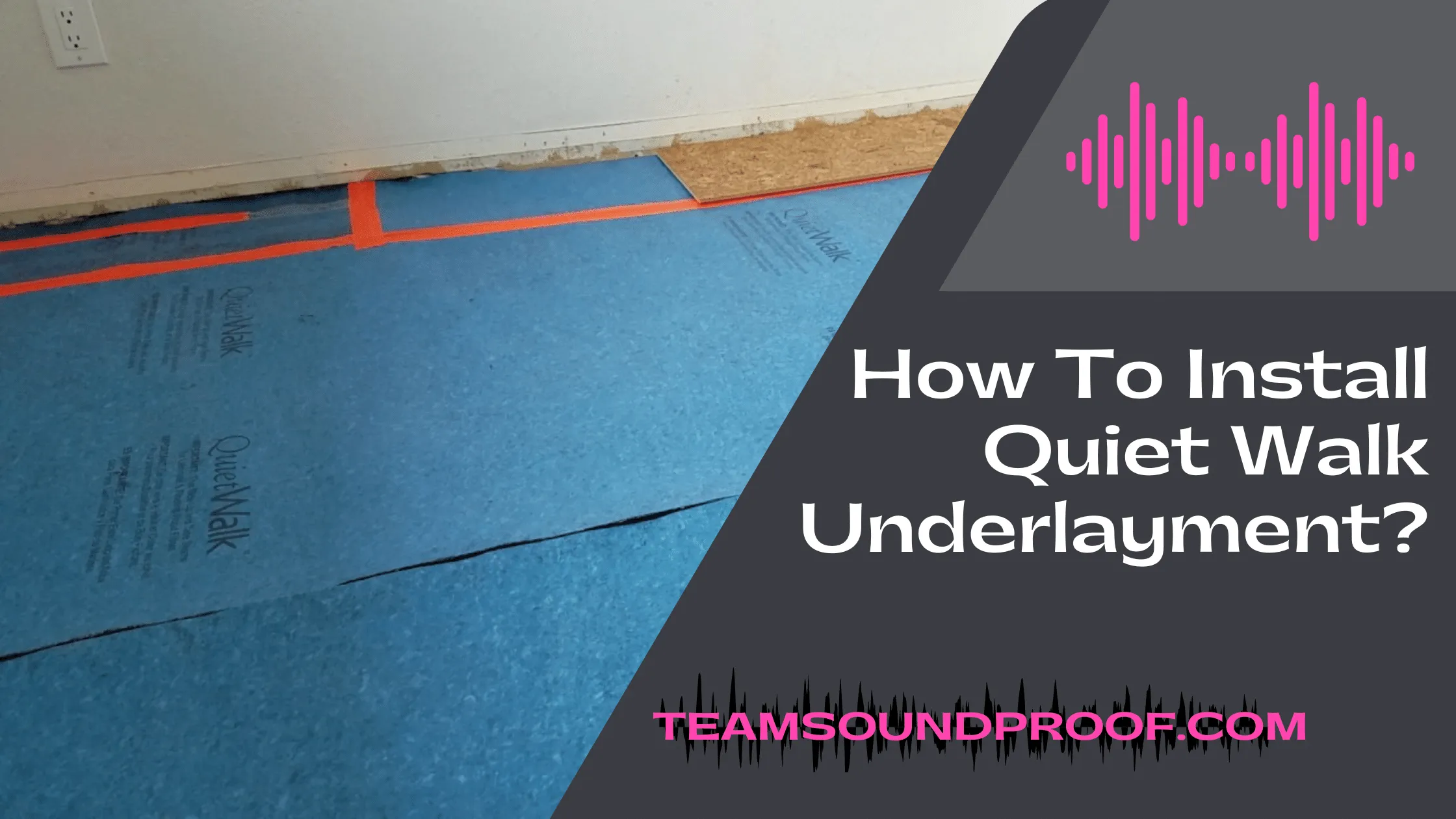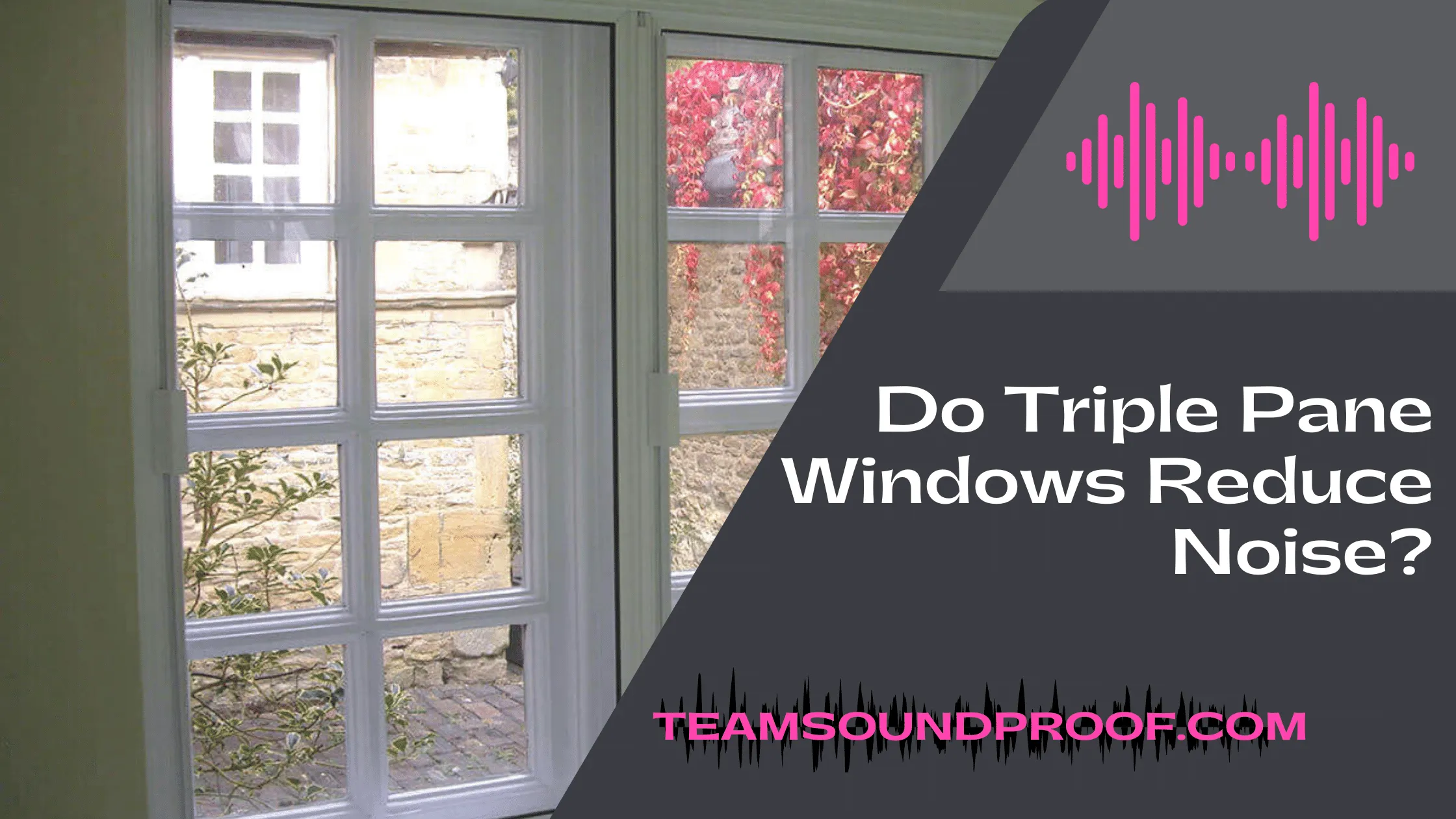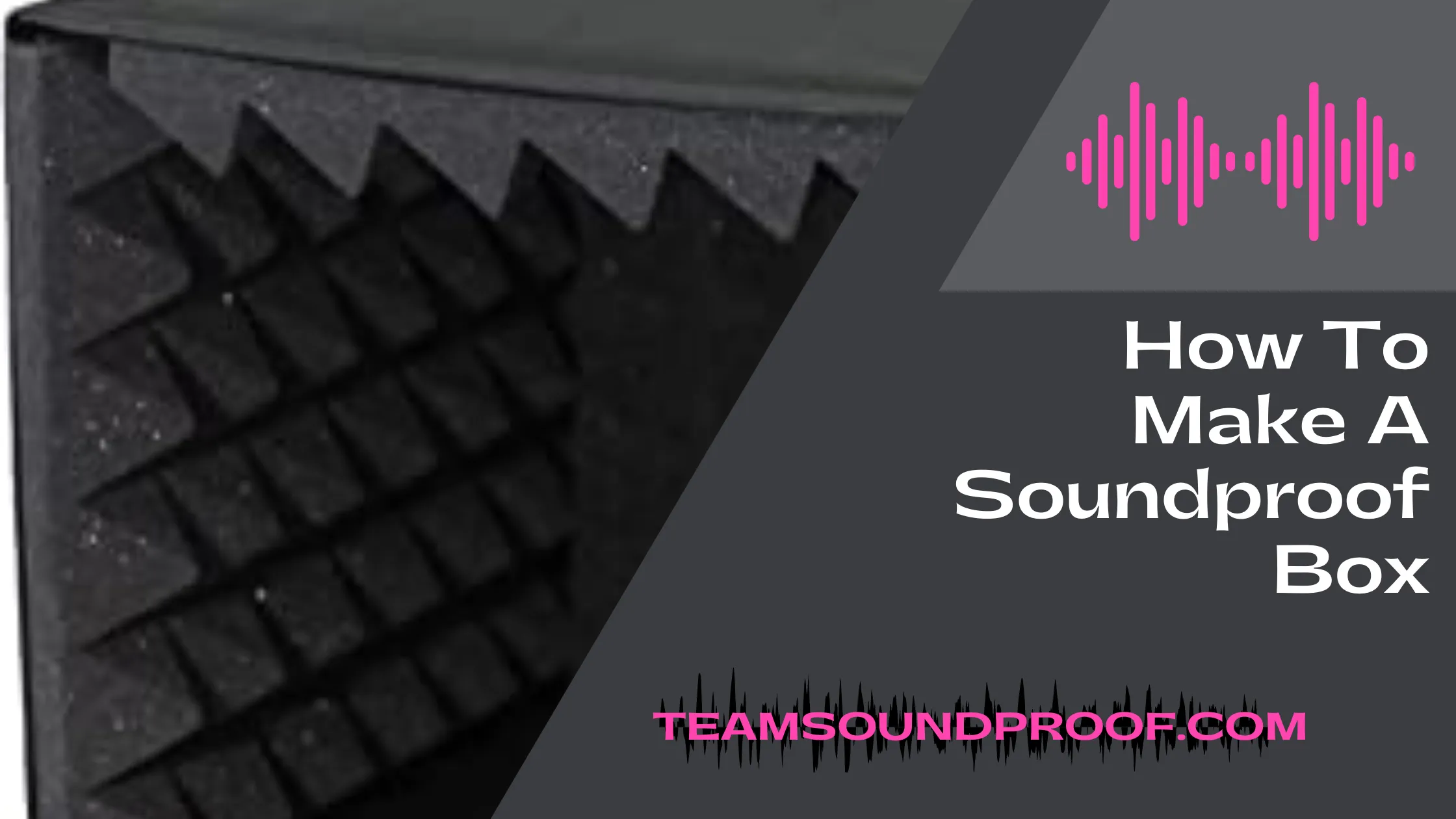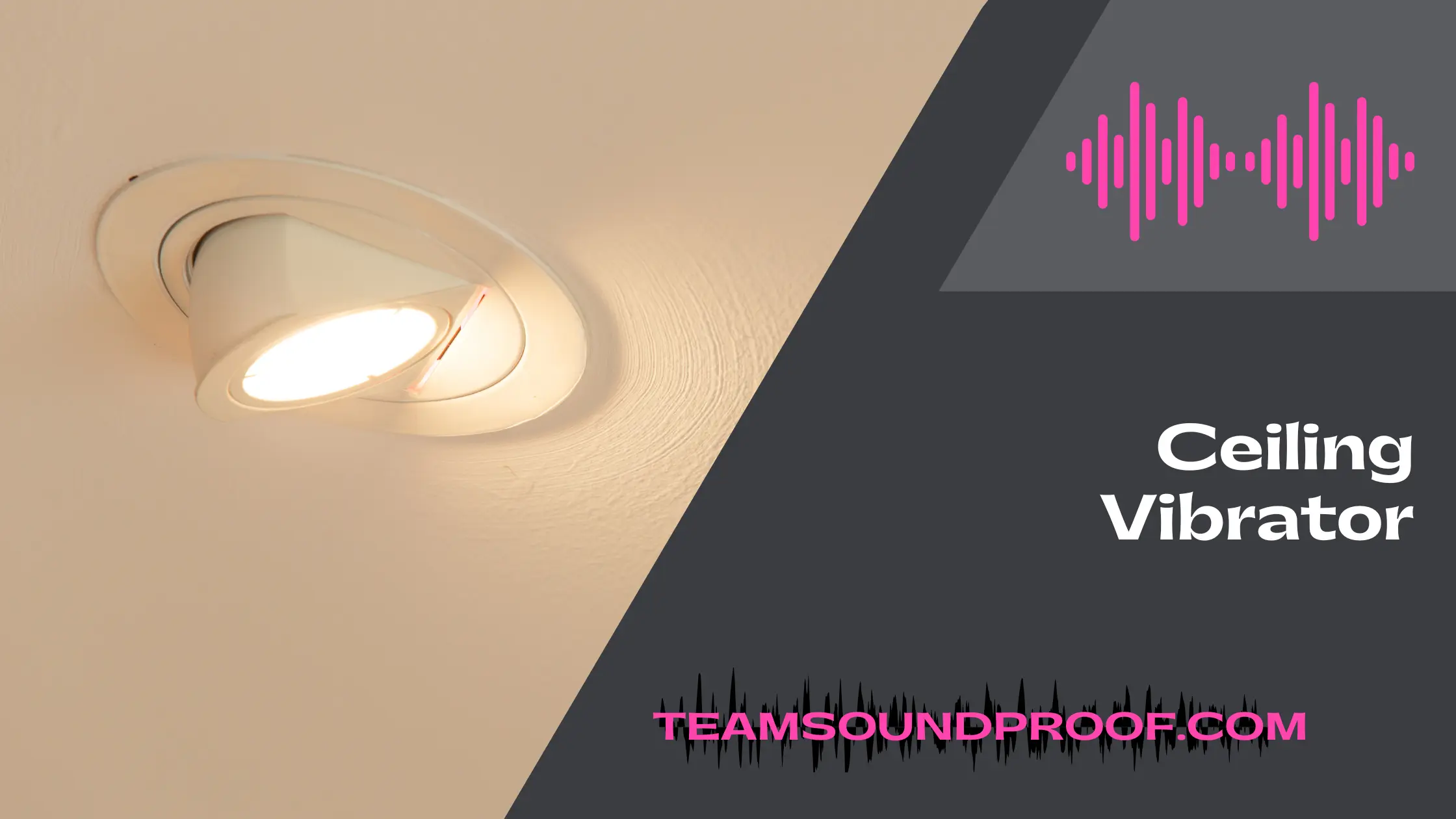Basement ceilings can be a common problem area for soundproofing. There are many ways to soundproof a basement ceiling, but some methods are more affordable than others. here, we will explore the cheapest way to soundproof a basement ceiling. We will also provide tips on how to achieve the best results. Keep reading to learn more!
Way To Soundproof A Basement Ceiling:
There are a few ways you can soundproof your basement ceiling on the cheap.
Use Blanket or Curtains:
One way is to use blankets or curtains. Simply hang them up around the perimeter of the room, and they will help to dampen the noise.
Ceiling with Egg Cartons:
Another way is to line the ceiling with egg cartons. This will create a barrier between the noise and you and will absorb some of the sounds. You can also use cork tiles or mats, which can be found at most hardware stores. simply adhesive them to the ceiling, and they will help to deaden sound.
Install a Drop Ceiling:
You could install a drop ceiling, which will not only deaden sound but also improve the look of your basement.
Suspended Ceiling:
The cheapest way to soundproof a basement ceiling is by installing a dropped or suspended ceiling. This will help to absorb and reduce the amount of noise that travels through the ceiling. You can also add insulation to the attic above the basement to help further reduce noise transfer.
Acoustic Panels:
Another option is to install acoustic panels on the ceiling of the basement. These panels are designed to absorb sound and will help to reduce noise levels in the room. However, they can be expensive and may not be feasible for larger basements.
Rug on The Floor:
Finally, you can install a rug on the floor of the basement to help muffle sounds from upstairs. This is a less effective solution, but it may be more affordable than other options.
What Are Some Common Materials that Can Be Used for Soundproofing?
There are a number of common materials that can be used for soundproofing, including acoustic tiles, foam panels, acoustic blankets, and curtain walls. In addition, there are a number of construction techniques that can be used to improve the soundproofing of a room, such as baffles, bass traps, and inertia blocks.
How Much of A Difference Will Soundproofing Make?
Soundproofing can make a big difference in reducing noise pollution. It can also help improve the acoustics of a room, making it more enjoyable to listen to music or watch movies. There are many different ways to soundproof a room, and the best approach depends on the specific situation.
For example, adding heavy curtains or installing acoustic panels on walls can be effective at absorbing sound. In some cases, it may also be necessary to seal cracks and gaps around doors and windows to prevent sound from leaking in or out.
What Are the Tips on How to Soundproof a Basement Ceiling?
There are a few things you can do to soundproof your basement ceiling:
Add Insulation:
This will help reduce the noise that travels through the ceiling.
Seal any cracks or gaps in the ceiling:
This will prevent sound from passing through.
Install Panels:
These will help absorb noise and reduce echo.
Use a sound barrier mat:
This is a thick mat that you can lay on top of your ceiling to further reduce noise transmission.
What Are the Best Ways to Install Soundproofing Materials?
There are several ways to install soundproofing materials.
One way is to use mass-loaded vinyl (MLV). MLV is a heavy vinyl material that can be used to dampen noise. It is usually installed between the wall studs or on the floor.
Another way to reduce noise is by using acoustic foam. The acoustic foam absorbs sound waves and helps to prevent them from passing through walls and ceilings. It can be installed in the form of panels, tiles, or spray foam.
Finally, another way to reduce noise is by using door seals and weatherstripping. Door seals help to keep out noise from outside, while weatherstripping can help keep out noise from inside.
How effective is soundproofing a basement ceiling?
Soundproofing a basement ceiling is a great way to improve the sound quality in your home. There are a few different ways to soundproof a ceiling, and the most effective methods will vary depending on the type of material you’re using and the amount of noise you’re trying to reduce.
Some common methods for soundproofing a basement ceiling include adding insulation, using sound-absorbing panels, or installing an acoustic drop ceiling. By taking some time to soundproof your basement ceiling, you can greatly improve the overall noise level in your home.
Conclusion:
Basement ceilings can be a challenge to soundproof, but there are several methods you can try. The cheapest way to soundproof a basement ceiling is by using insulation and caulking. You can also use acoustic tiles or sound-absorbent panels to help reduce the noise level in your basement.
If you have an unfinished basement, these materials are easy to install and they will make a big difference in the amount of noise that travels through the ceiling.
Frequently Asked Questions
What Are the Benefits of Soundproofing a Basement Ceiling?
There are many benefits to soundproofing a basement ceiling. Here are a few:
Increased Privacy and Security:
By soundproofing your basement ceiling, you’ll increase the privacy and security of your home, as well as reduce noise transmission to other areas of the house. This is especially important if you have a home office in your basement or if you use the space for other activities that require privacy.
Improved Comfort and Energy Efficiency:
By reducing noise transmission, soundproofing can also improve comfort and energy efficiency by creating an environment that’s more conducive to relaxation or productivity. Additionally, by preventing heat loss/gain through the ceiling, soundproofing can help to reduce energy bills in winter and summer.
Enhanced Resale Value:
By making your basement more comfortable and efficient, soundproofing can also enhance the resale value of your home.






